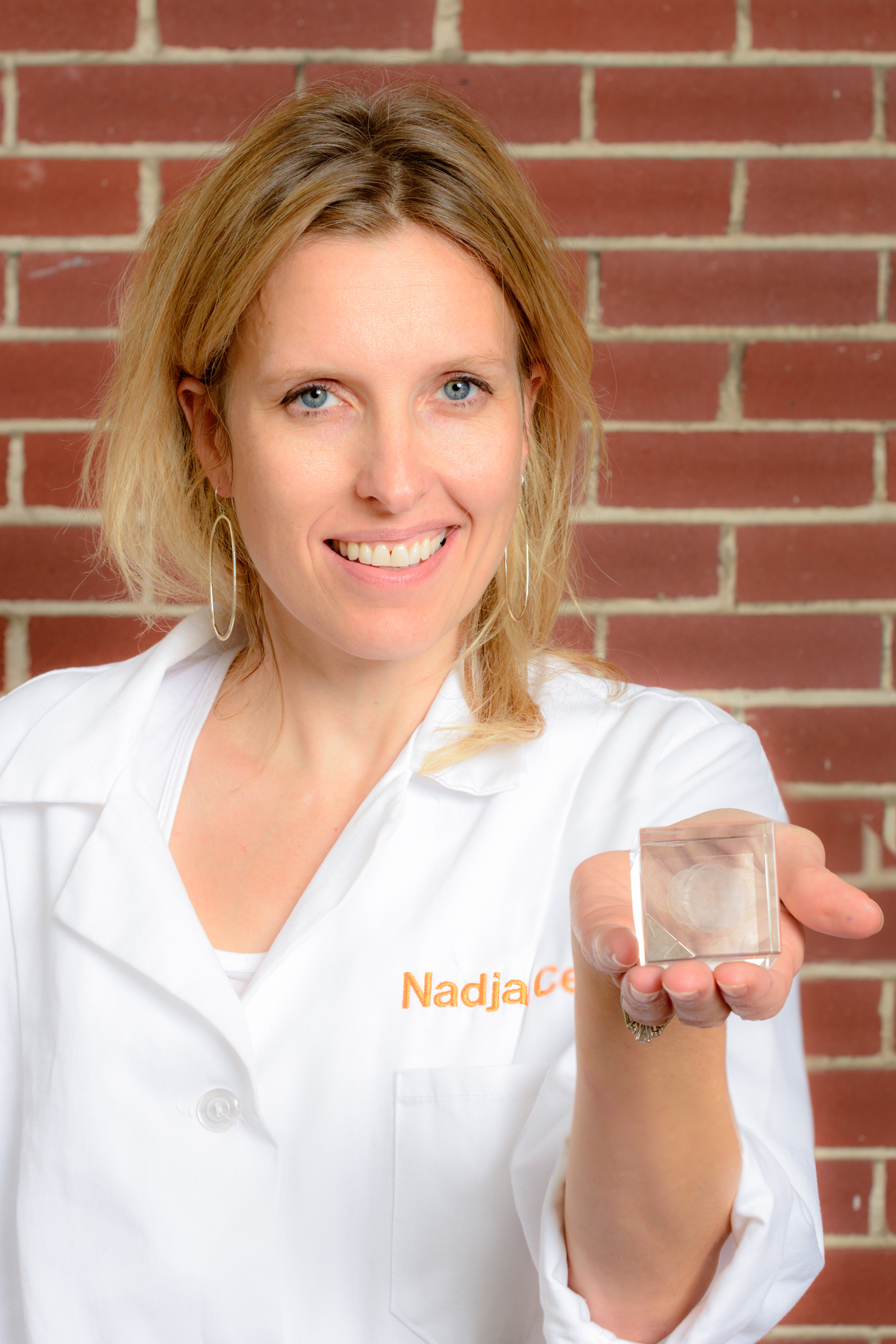
Nadja Cech, Patricia A. Sullivan Distinguished Professor of Chemistry and Co-Director of the Medicinal Chemistry Collaborative, is a mass spectrometrist. She specializes in analytical and natural products research, and supervises a highly collaborative and dynamic team of 12 undergraduate, graduate, and postdoctoral researchers. Dr. Cech directs a National Institutes of Health funded predoctoral fellowship program focused on training and mentorship of students in the field of natural products, one of only two programs of this nature in the US. The Cech group is recognized for their expertise in mass spectrometry metabolomics, particularly as it applies to studying synergy in complex natural product mixtures and in the development of novel approaches to target drug resistant bacterial infections.
Nadja spent much of her childhood living with her family of 5 in a 300 square foot yurt on a farm in Southern Oregon.
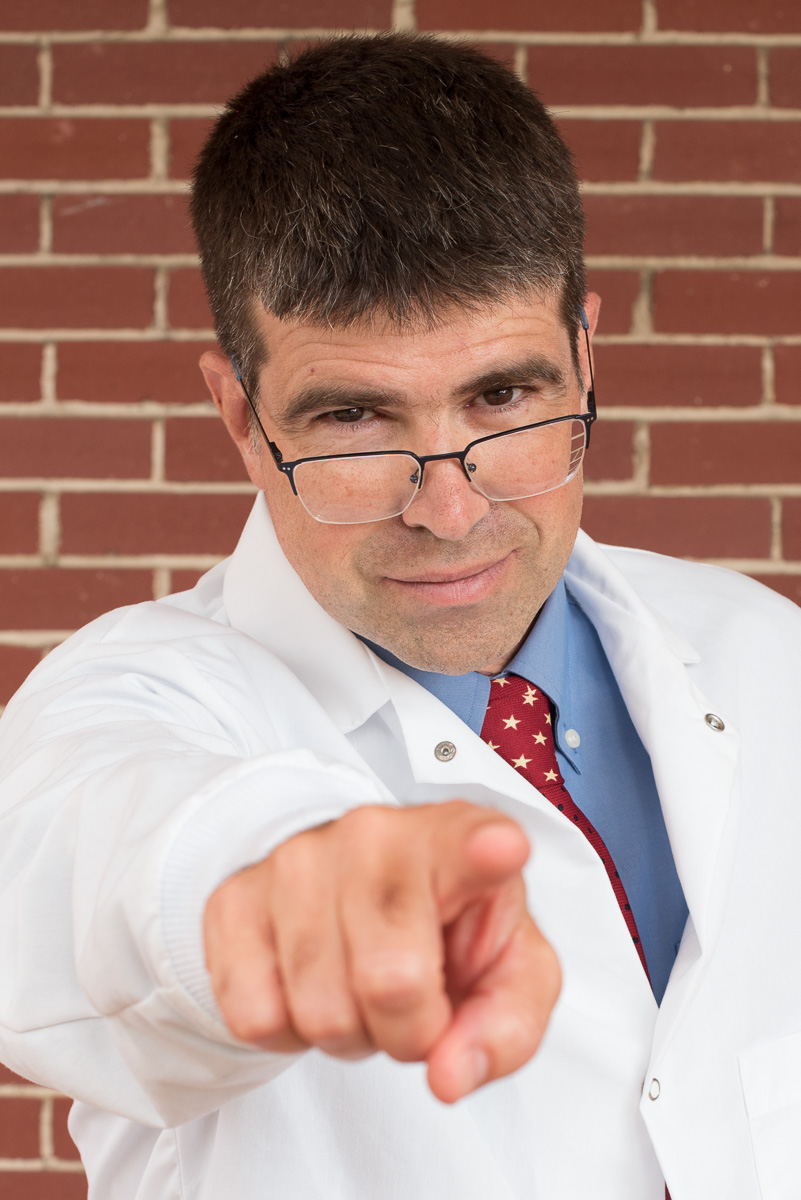
Nick Oberlies, Patricia A. Sullivan Distinguished Professor of Chemistry and Pharmacognosy, and Co-Director of the Medicinal Chemistry Collaborative, has a passion for unlocking the chemistry of nature. The long term goal of his lab is to discover bioactive compounds from nature that can be used as drug leads against a variety of diseases, with particular emphasis in the anticancer realm.
Nick enjoys playing guitar, with loads of enthusiasm (and a tasty amount of distortion).
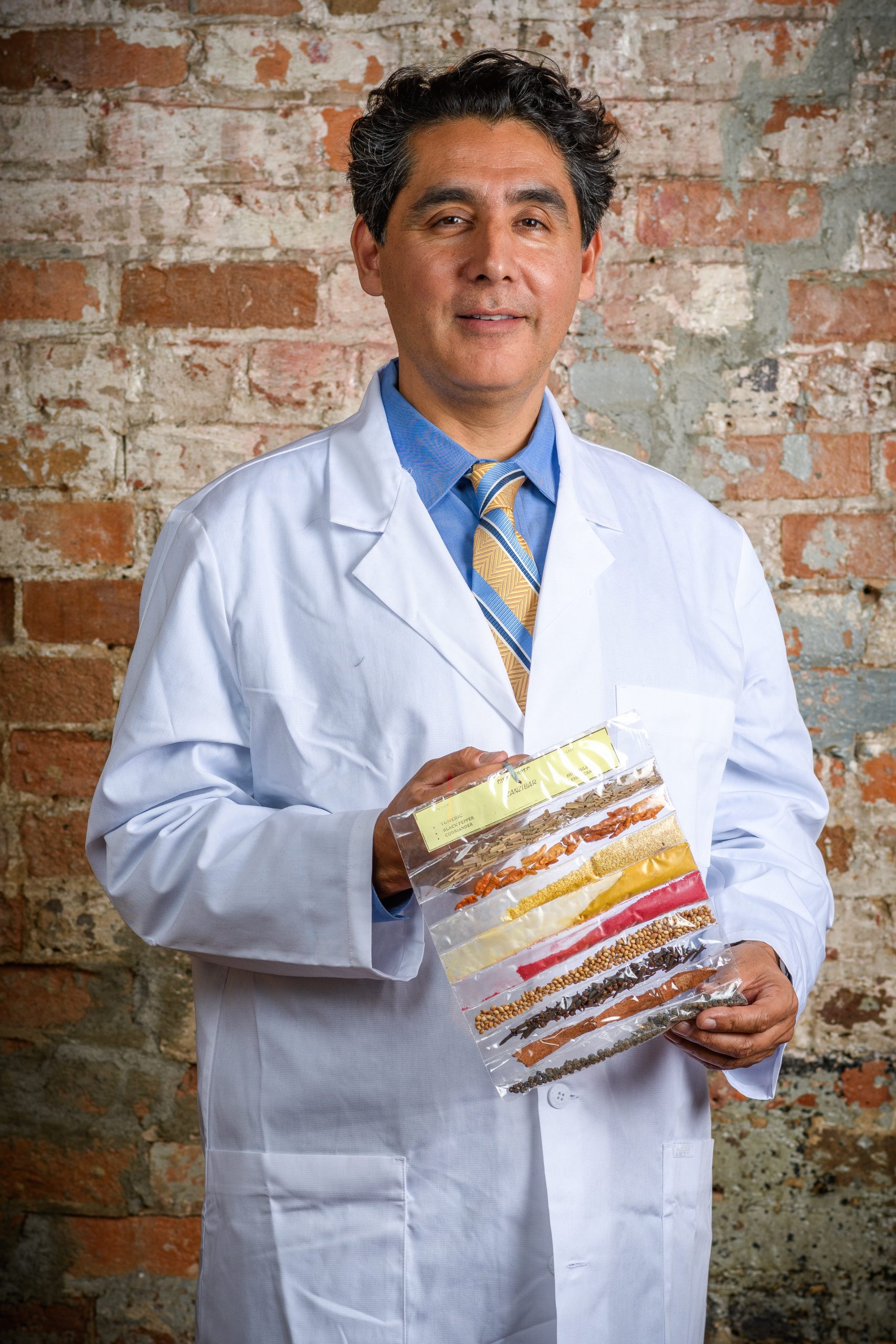
Omar H. Ali is Dean of Lloyd International Honors College and Professor of Comparative African Diaspora History. He co-teaches a course with Professor Nadja Cech entitled “How do we know what we know?” for Honors and McNair Scholars students. The course explores issues of epistemology, methodology, and interdisciplinary research.
When he’s not deaning or professing, he’s playing with his two kids and pretending to be a dad.
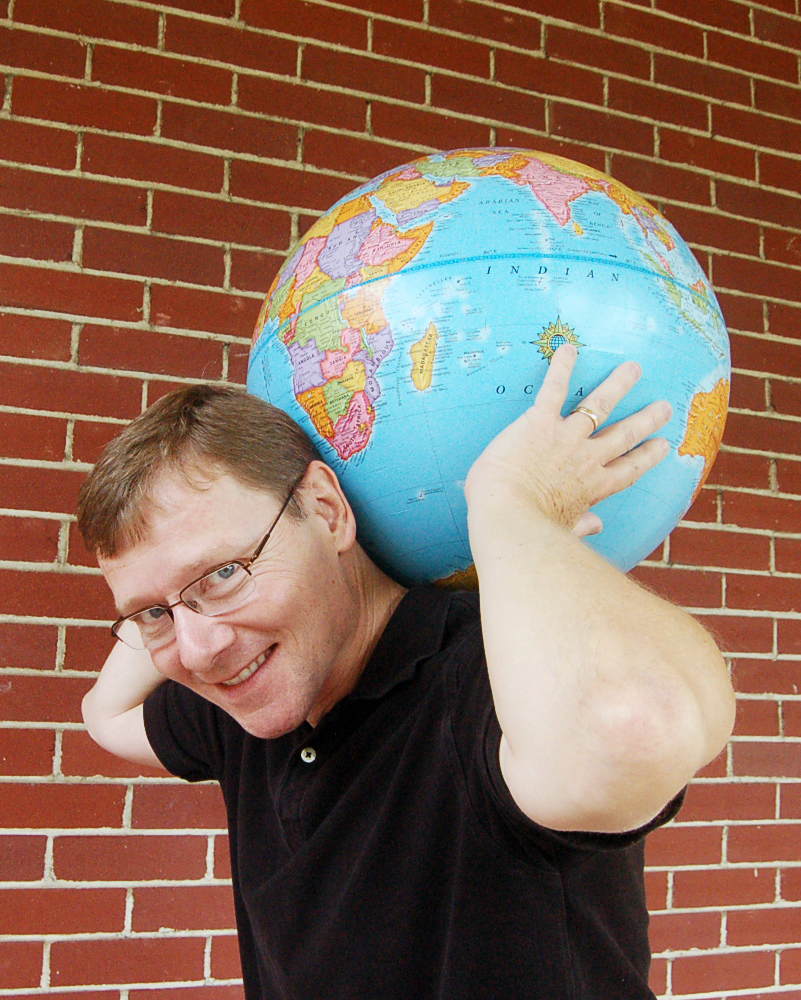
Rick Bunch, Professor of Geography, specializes in the development of methods and concepts that underlie Geographic Information Systems (GIS). He is interested in collaborative research that requires the use of GIS and the conceptualization, modeling and analysis of geographic data. His work has included the development of radio wave propagation models and new approaches to incorporating the impacts of man-made and natural features that influence radio waves as they travel across the earth’s surface. He has also worked with faculty in Chemistry to help develop a geospatial database of collection sites. You can see more about his work here.
Rick spends his free time geocaching wherever he can without getting into trouble, and doing math with his five homeschooled children.
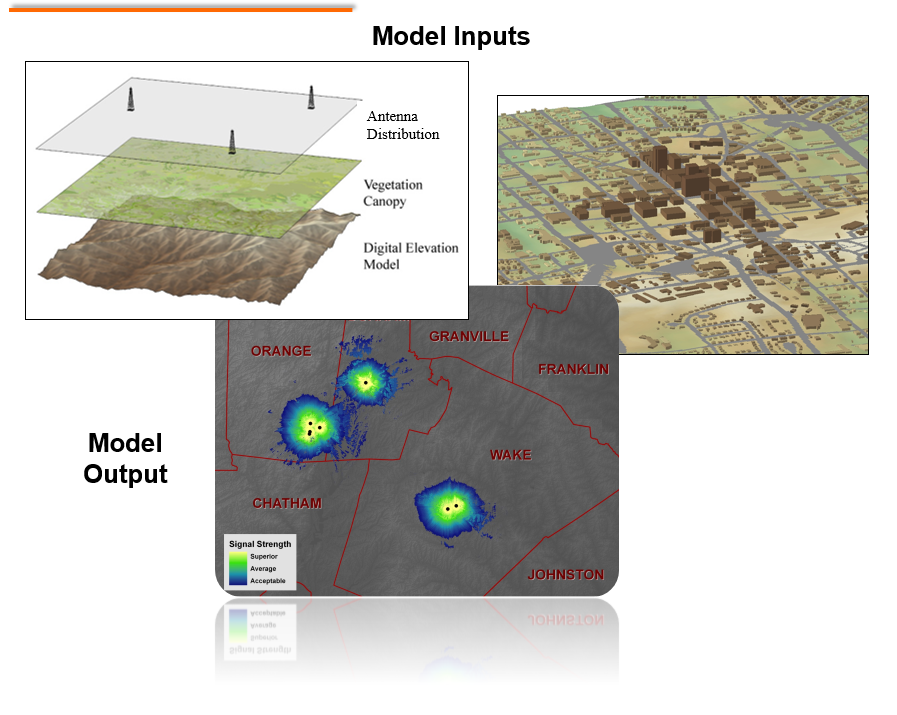
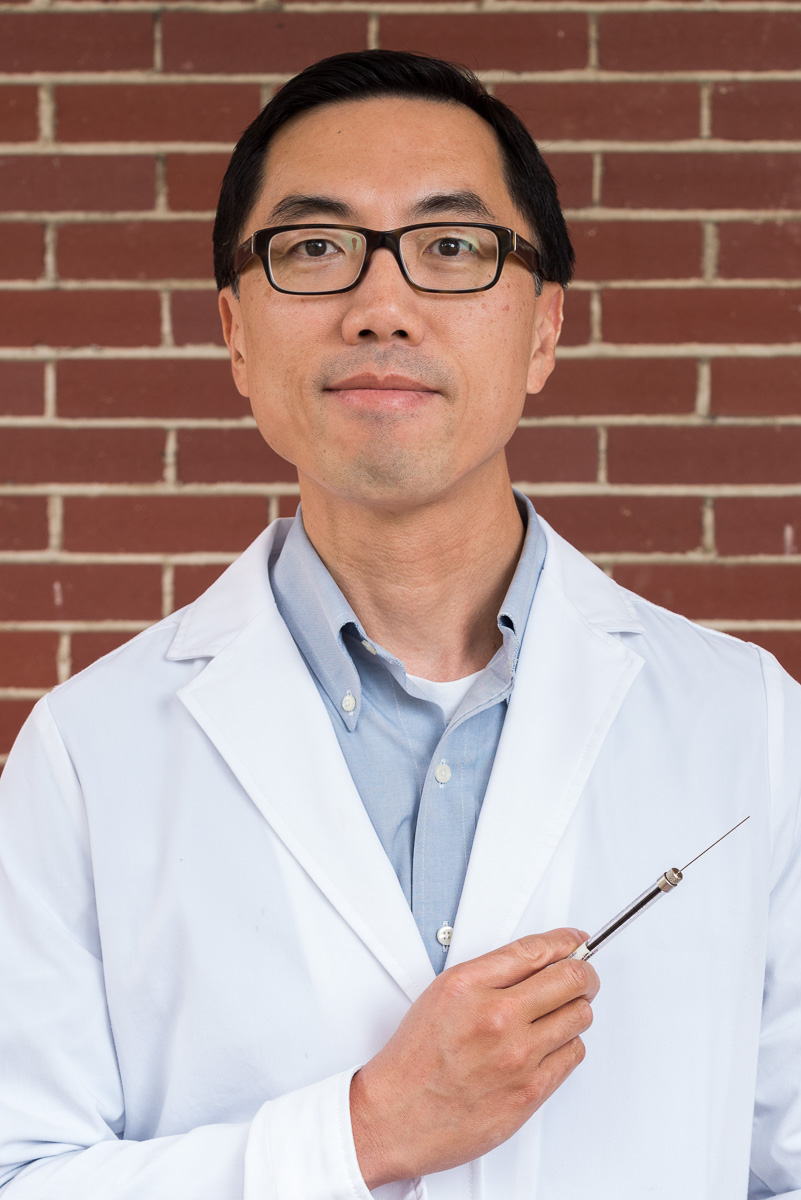
Norman Chiu, Associate Professor of Chemistry and PhD Graduate Director, focuses on the analysis of disease associated biomarkers using mass spectrometry and other analytical techniques. Through the development of new methods for monitoring specific biomarkers, the ultimate goal is to improve our ability to prevent disease development and/or achieve accurate diagnosis as early as possible. Dr. Chiu has continued to enjoy working with his research students and proud of their achievements both inside and outside his research lab.
During his time off, Dr. Chiu enjoys watching movies and traveling to different countries.
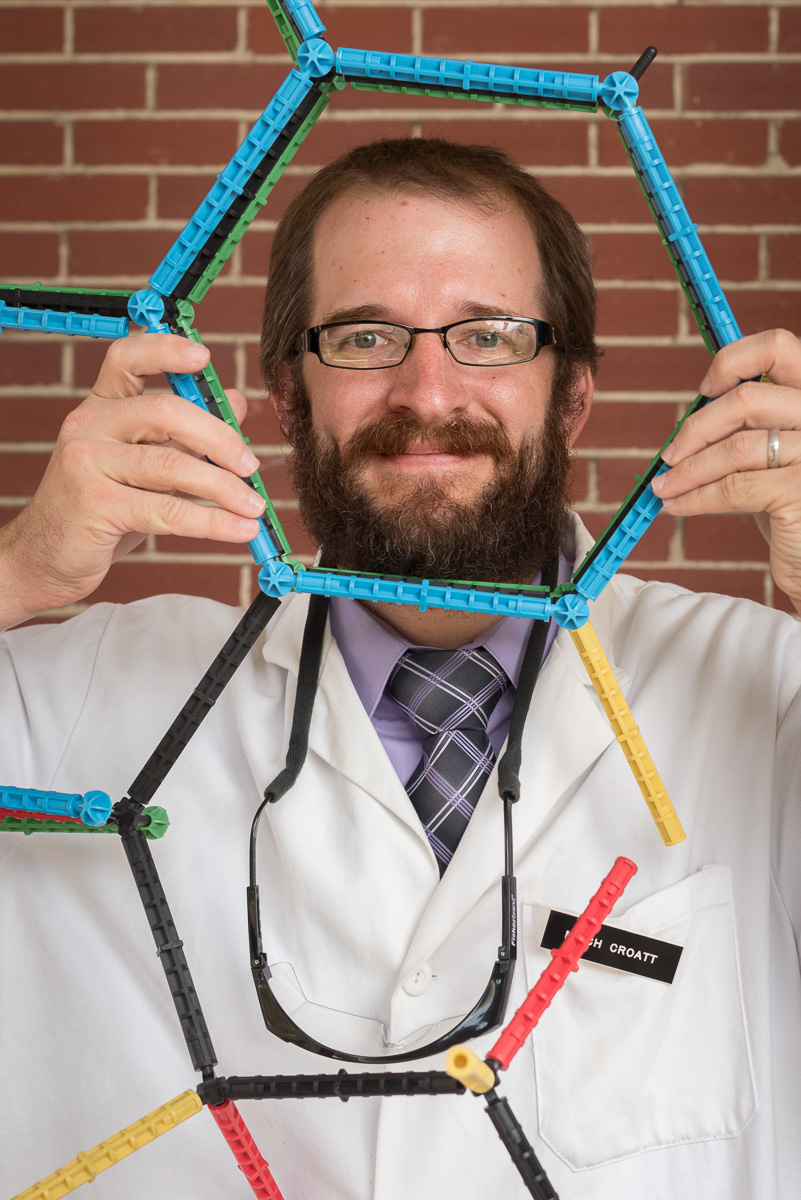
Mitch Croatt, Associate Professor of Chemistry and Department Heard, specializes in the synthesis of medicinally important molecules using as few steps as possible. To do so, they: 1) design and develop new reactions; 2) use function-oriented synthesis to simplify structures; 3) collaborate with natural products chemists to modify complex natural products; and 4) use late-stage diversification.
In his spare time, Mitch likes to help coach his daughters’ softball team, go camping, and do woodworking.
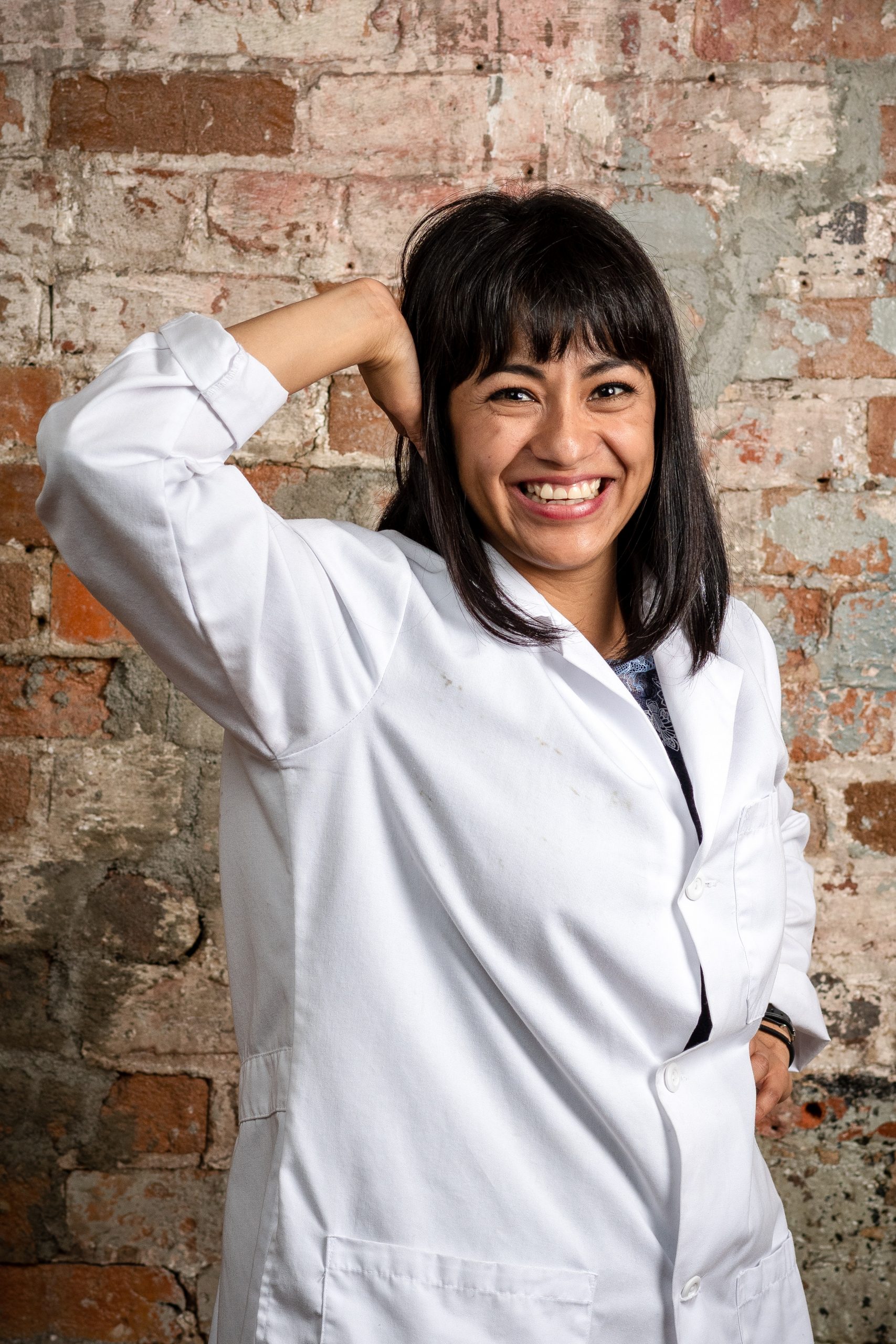
Laura Flores-Bocanegra is a postdoctoral research scientist in the Oberlies Group in the Department of Chemistry & Biochemistry.
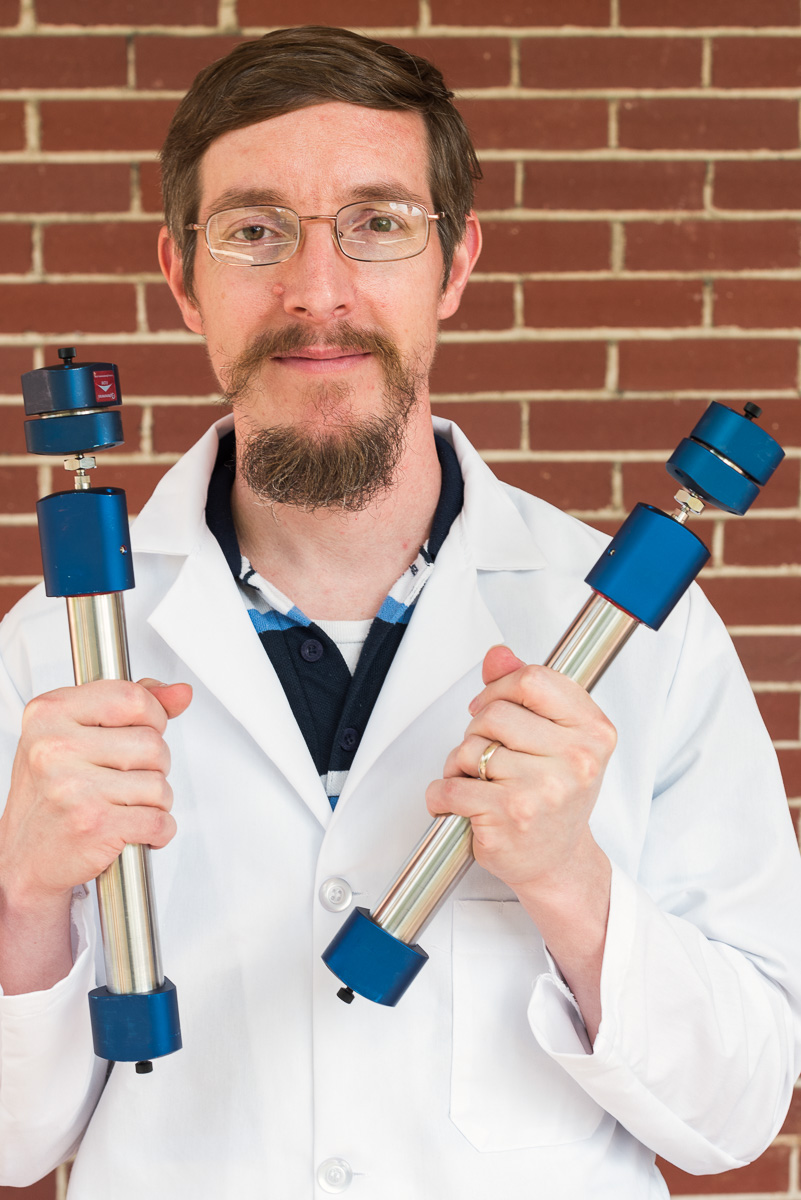
Tyler Graf is a research scientist and expert in natural product isolation. He enjoys maintaining the Oberlies research lab and training graduate students in the chromatographic arts. He is gifted at scaling up purification processes to provide sufficient material for conducting in vivo studies. Tyler has worked with many botanical and fungal samples, and has particular expertise working with flavonolignans from milk thistle (Silybum marianum).
Tyler is a competitive cyclist in many cycling disciplines, specializing in mountain biking and gravel races. He has podiumed in numerous events, having raced throughout the southeast. He has traveled as far as Colorado in search of new trails.
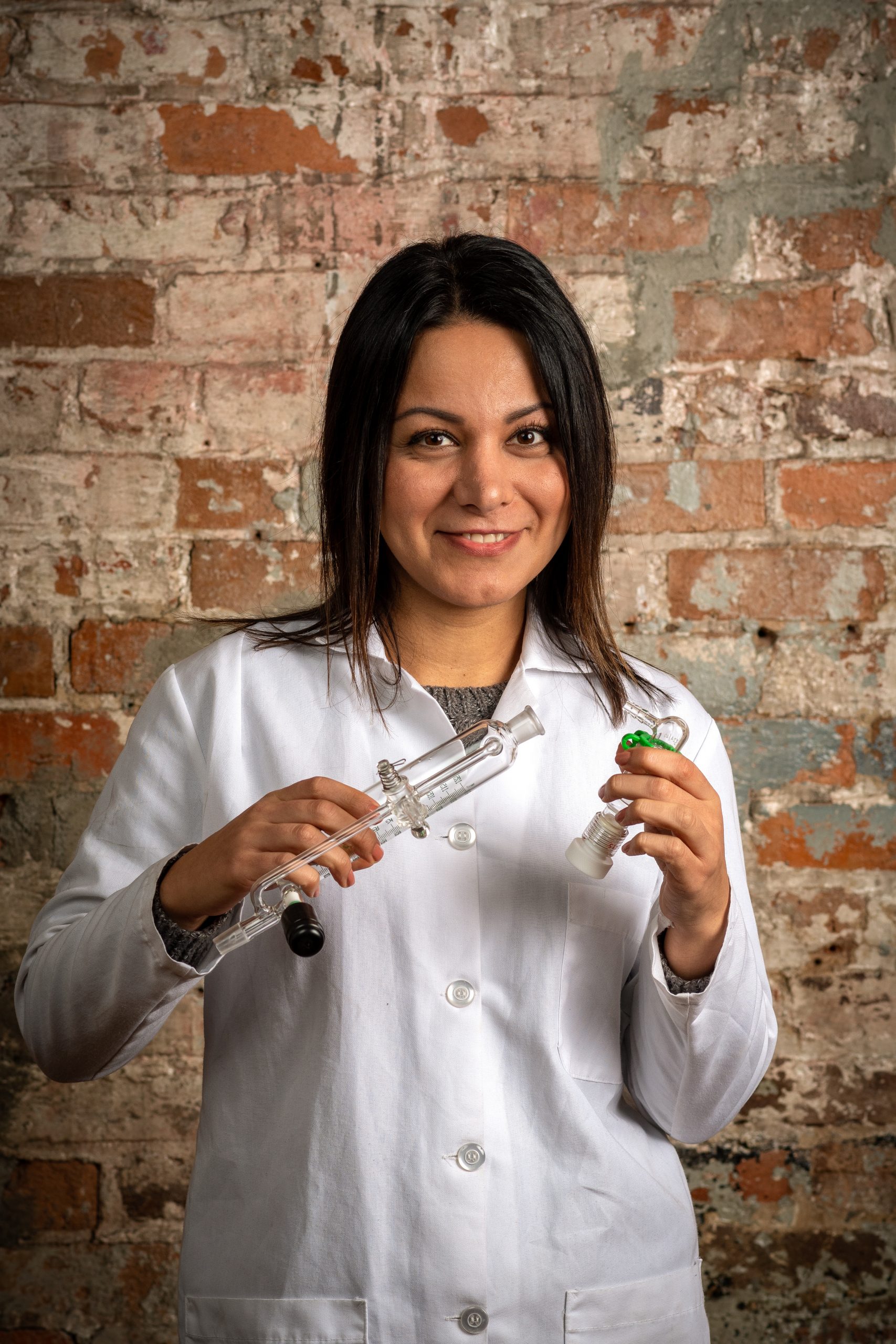
Shabnam Hematian, Assistant Professor of Chemistry, specializes in bioinorganic chemistry and is interested in biological and energy sciences from an inorganic chemistry perspective. The Hematian Research Group combines a variety of research tools to address fundamental challenges related to health, environment, and energy. Their research is focused on the manipulation of a broad range of redox processes that take place within protein scaffolds, synthetic coordination compounds, and on nanostructured electrocatalysts.
Coming from Iran, Shabnam loves cooking and eating Persian food. Food is a big part of the culture and it serves as a catalyst that brings people together. She also enjoys spending time with friends, face-timing with family back home, painting, and traveling.
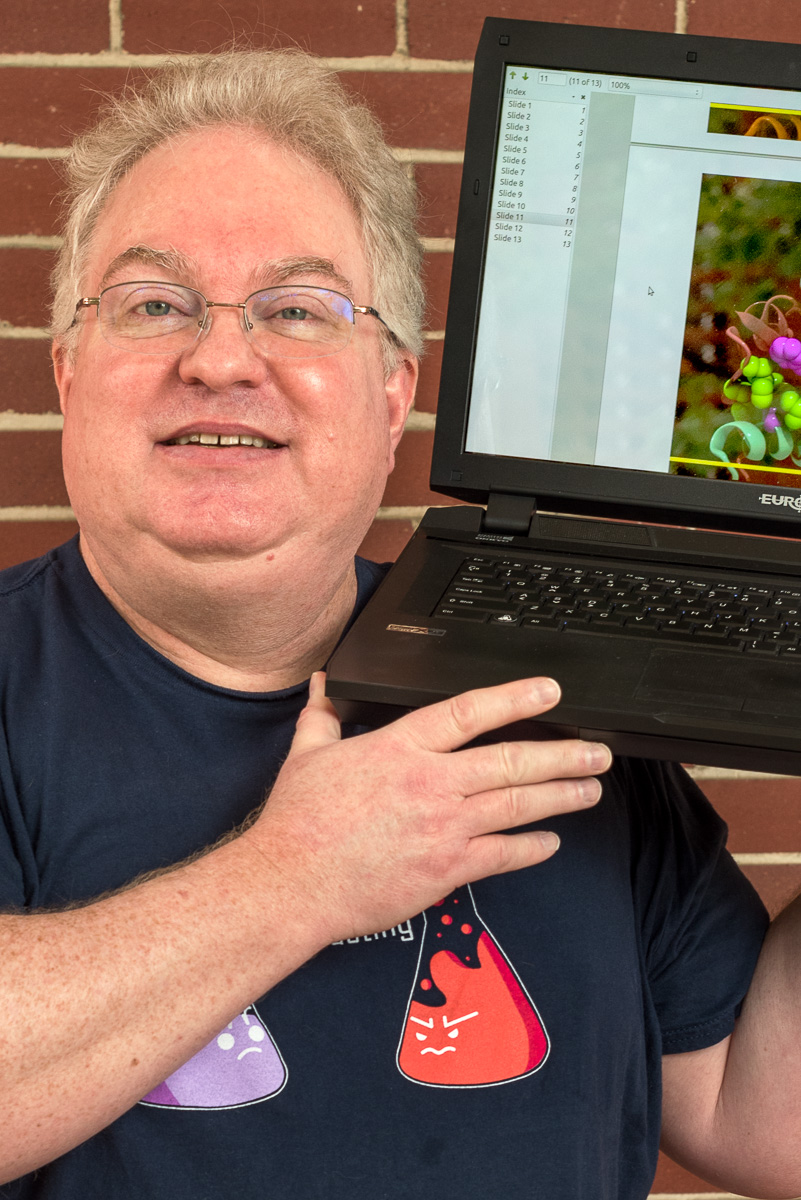
Dow Hurst works with Dr. Patricia Reggio on computationally assisted drug discovery. His expertise is particularly focused on the cannabinoid receptors, and he helped to build the first functional models of the CB1 and CB2 receptors. Dow is also involved in training many young scientists in computational modeling.
Fun fact: In his spare time Dow enjoy geocaching. He also wears the best T-shirt we have ever seen for a technology nerd, it says, “Have you tried turning it off and turning it on again?”
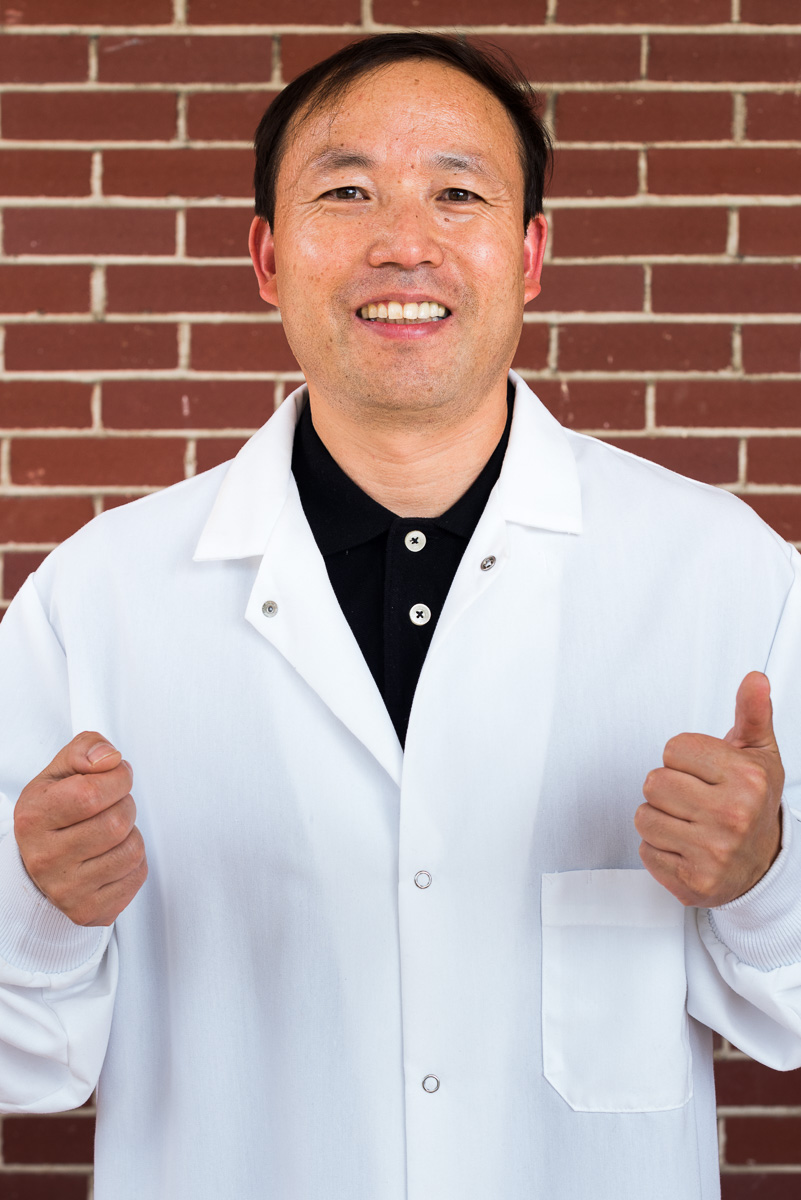
Zhenquan Jia, Associate Professor of Biology, is a toxicologist and Associate Professor of Biology. The undergraduate and graduate student researchers in his research group focus on the cardiovascular inflammation induced by exogenous and endogenous toxicants. In line with this research, his group is also actively studying the molecular mechanisms of bioactive compounds/novel natural products to ameliorate toxicant-mediated damage to cells and tissues. The approaches include cell- and molecular biology techniques and different animal models.
Dr. Jia loves spending time with his family, who enjoy traveling and swimming.

John Z. Kiss is the Dean of the College of Arts and Sciences at UNCG, and his academic appointment is as Professor of Biology. He served as Dean of the Graduate School at the University of Mississippi from 2012-16. John was on the faculty of Miami University (1993-2012) where he was a University Distinguished Professor and Chair of the Botany Department. He has been an instructor in 15 different courses ranging from introductory biology for first year students to advanced graduate courses. He also has mentored 49 independent research projects by undergraduates and has served as major professor for 14 M.S. students, 8 doctoral students, and 6 post-doctoral scholars.
John likes to travel, and he and his wife Helen have been to many countries throughout Europe, including a recent trip to Iceland. He once gave a keynote lecture in Szeged, Hungary, the city of his birth. John immigrated to the United States when he was four years old. His favorite line from the play Hamilton is: “Immigrants—we get the job done!”
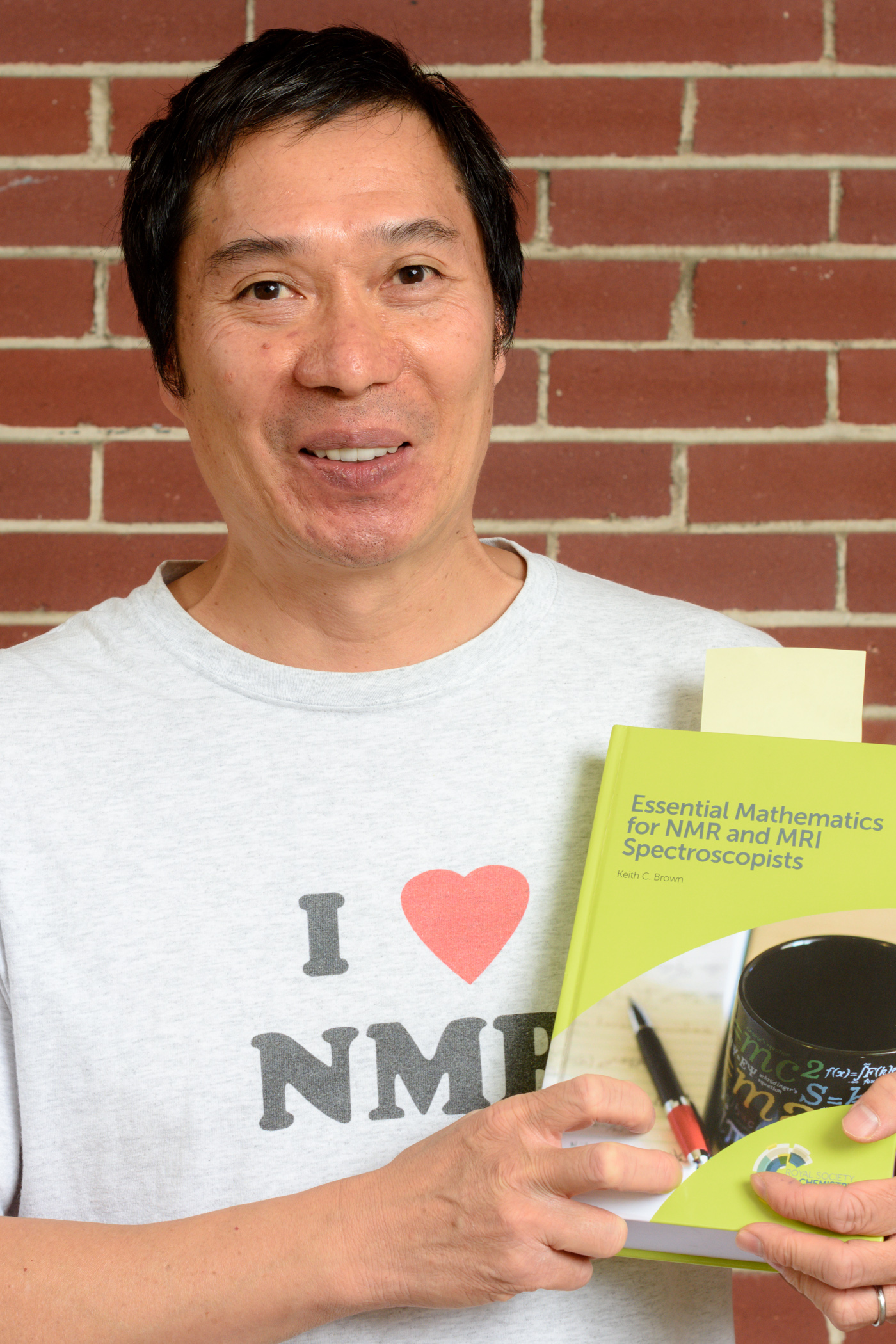
Franklin Moy, NMR Research Operations Manager, is a protein chemist by training and Director of the NMR facilities at the UNCG Department of Chemistry and Biochemistry and the Joint School of Nanoscience and Nanoengineering. Franklin specializes in theory, instrumentation and application of NMR spectroscopy, especially as applied to protein NMR spectroscopy and small molecule drug discovery.
To relax, Franklin watches the behaviors of koi fish and plays chess. He also teaches math solving strategies to middle schoolers.
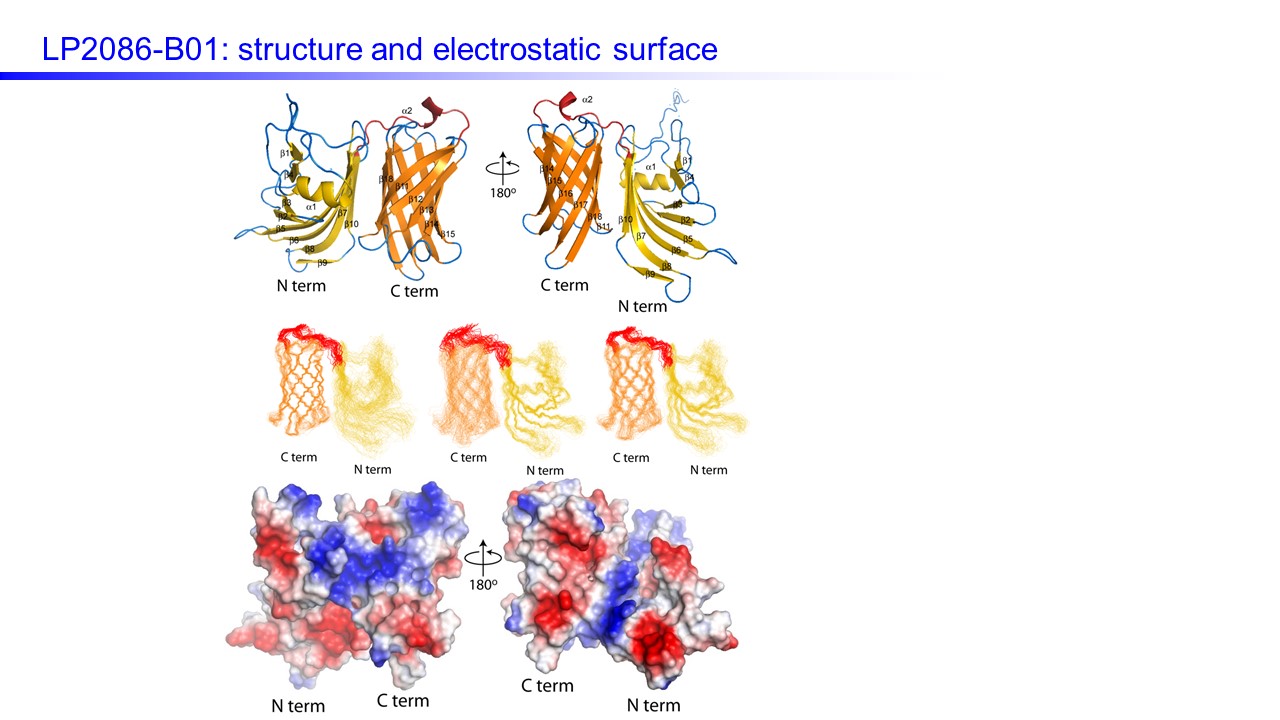
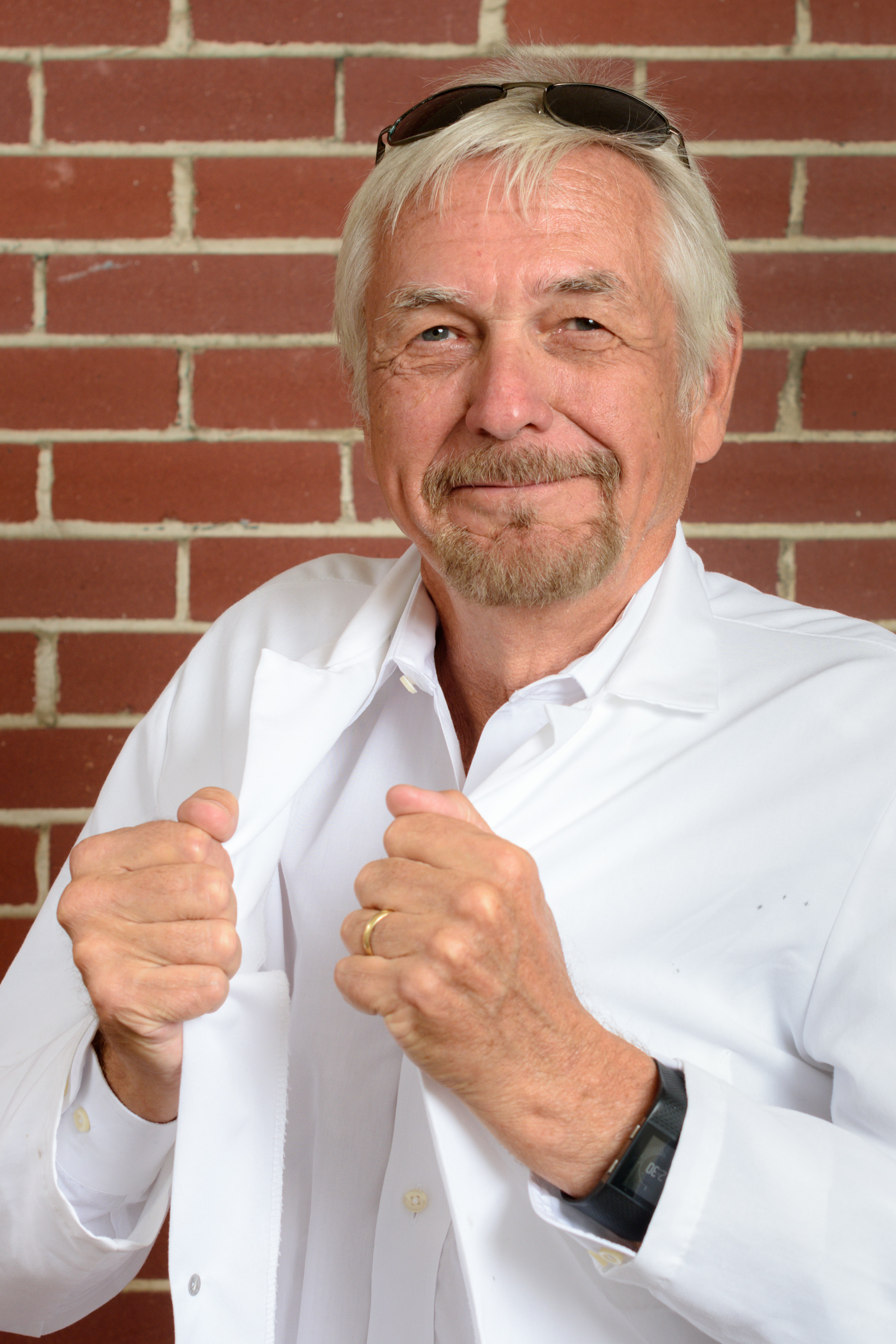
Cedric J. Pearce, CEO of Mycosynthetix and Adjunct Professor of Chemistry, is interested primarily in biologically-active microbial products. This is an endeavor that combines a lifelong interest in a variety of chemistry- and biology-based scientific disciplines. Since 2001, when he founded Mycosynthetix, Cedric’s focus has been on the discovery of fungal metabolites; much of this work has been in collaboration with Professor Nicholas Oberlies. Funding for this venture has been a mix of bootstrapping, federal support including multiple SBIR grants, and collaborations with the biotech, ag and pharmaceutical industries. The most advanced project underway at Mycosynthetix is the natural herbicide mevalocidin, which is currently being evaluated as a development project by a major agriculture company.
Cedric has been a pilot for over 30 years and although no longer flying his Russian YAK in airshows, when time allows he enjoys adventures in his Bonanza traveling as far north as Prince Edward Island, and as far south as the Bahamas and the Dominican Republic.
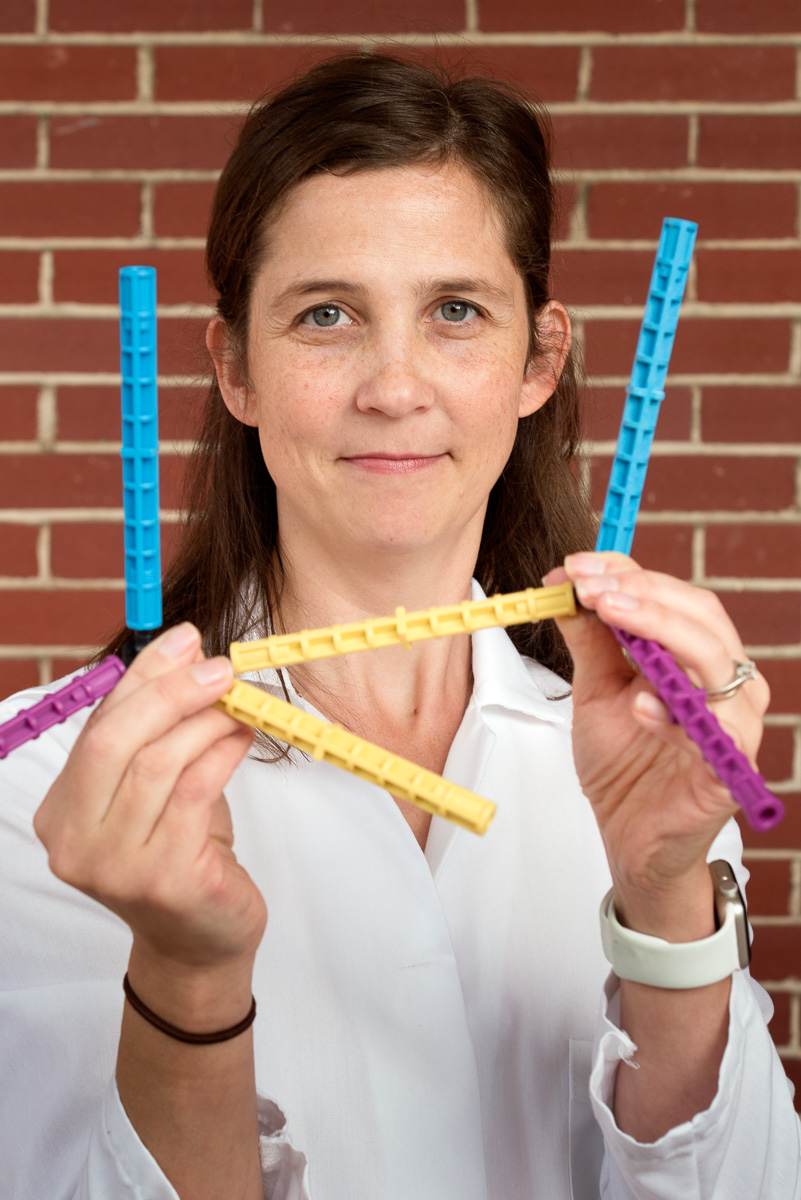
Kimberly Petersen, Associate Professor, is a synthetic organic chemist. The undergraduate and graduate student researchers in her group use state of the art equipment and techniques to develop new reactions for the preparation of small molecules with a specific spatial arrangement. These molecules are valuable because of their relevance to compounds of biological importance.
Kim has traveled to (or through) 47 US states and visited more than 30 National Parks.
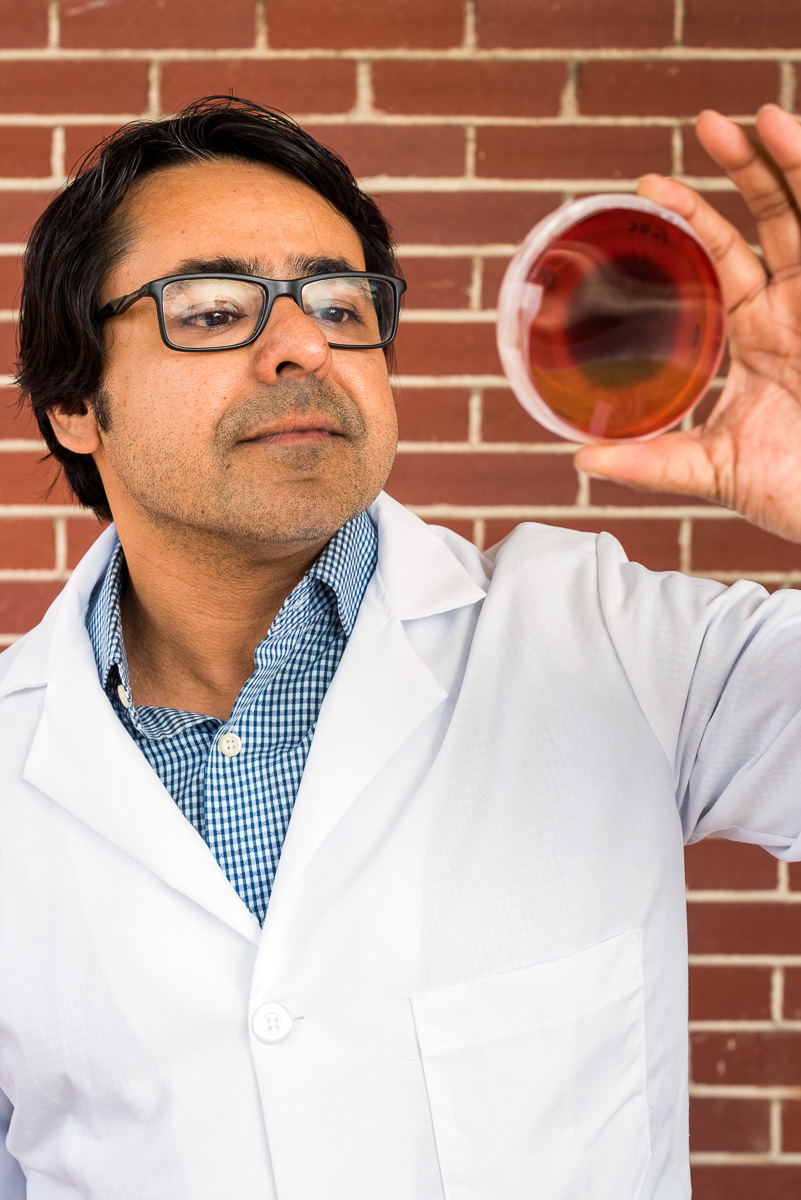
Huzefa Raja, Research Scientist, is a mycologist by training and studies fungal diversity and biology. He isolates and describes known and novel fungi belonging to different ecological groups. His research findings have important implications in studies of biodiversity, phylogenetics, and taxonomy, contributing new understanding to the origins and diversity of the fungal kingdom. Huzefa is an expert at identifying fungi, using a combination of morphological data, molecular phylogenetics and DNA barcoding approaches.
When Huzefa is not examining fungi through a microcope, he may be found playing or watching cricket or, with the right company of friends, even golf. He also enjoys watching model trains.
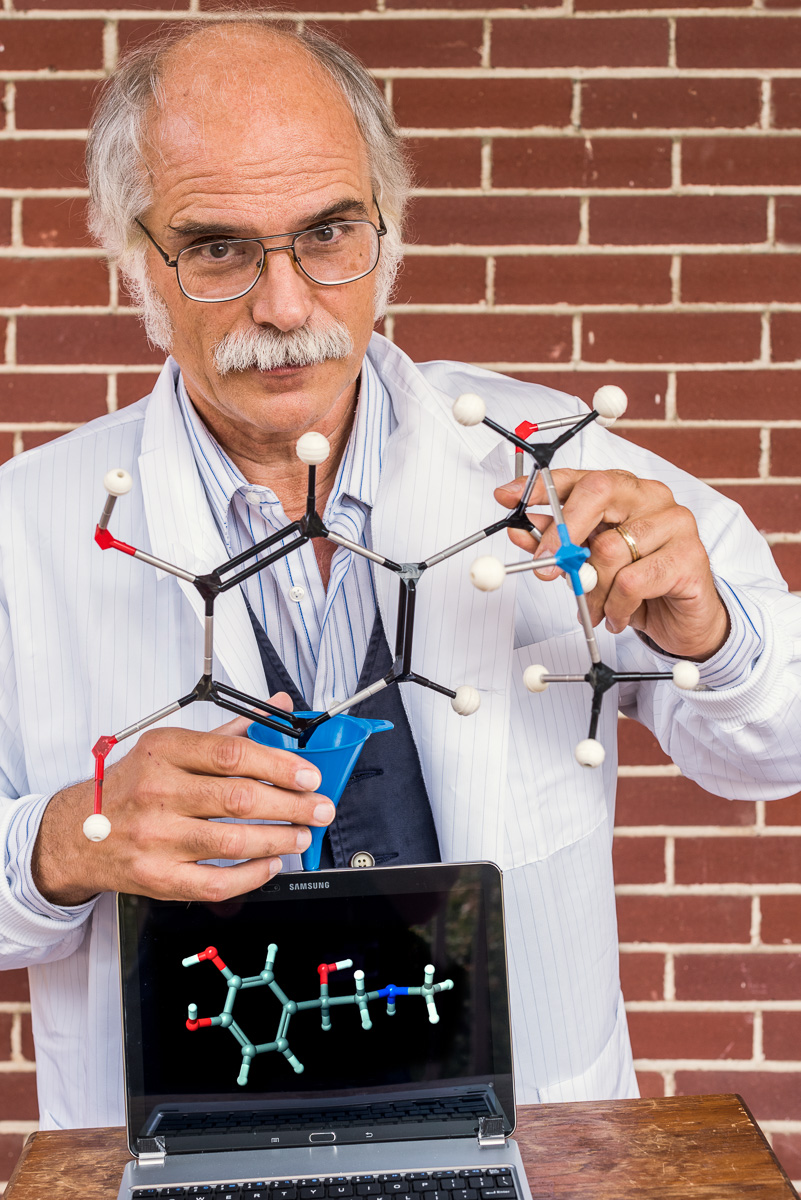
E. Will Taylor, Professor of Chemistry and Biochemistry and Director of the Biosafety Level 3 Laboratory at the Joint School of Nanoscience and Nanoengineering, is a pharmacologist, computational chemist and virologist. Dr. Taylor has been engaged in research on HIV, Ebola and other emerging infectious diseases for over 25 years, and is best known for his work on the role and mechanisms of the dietary trace element selenium in reducing the pathophysiological effects of various RNA viruses. His group recently identified novel antisense interactions between viral RNAs and host mRNAs such as thioredoxin reductases as a previously unrealized contributor to viral pathology. Active research projects with current graduate students range from purely computational studies of nano-bio-structures (such as G-quadruplexes) to studies of mechanisms of viral pathogenesis, including both in vitro cellular and molecular methods, and work with live HIV-1 and Zika virus.
Will is a guitar and piano enthusiast, ready and willing to form a house band with any other MC2 members. With his wife Maria Dormandy Taylor, he is also a cofounder of the Triad Vegan Society, and operates the Dharma Farm Animal Refuge in Archdale, NC
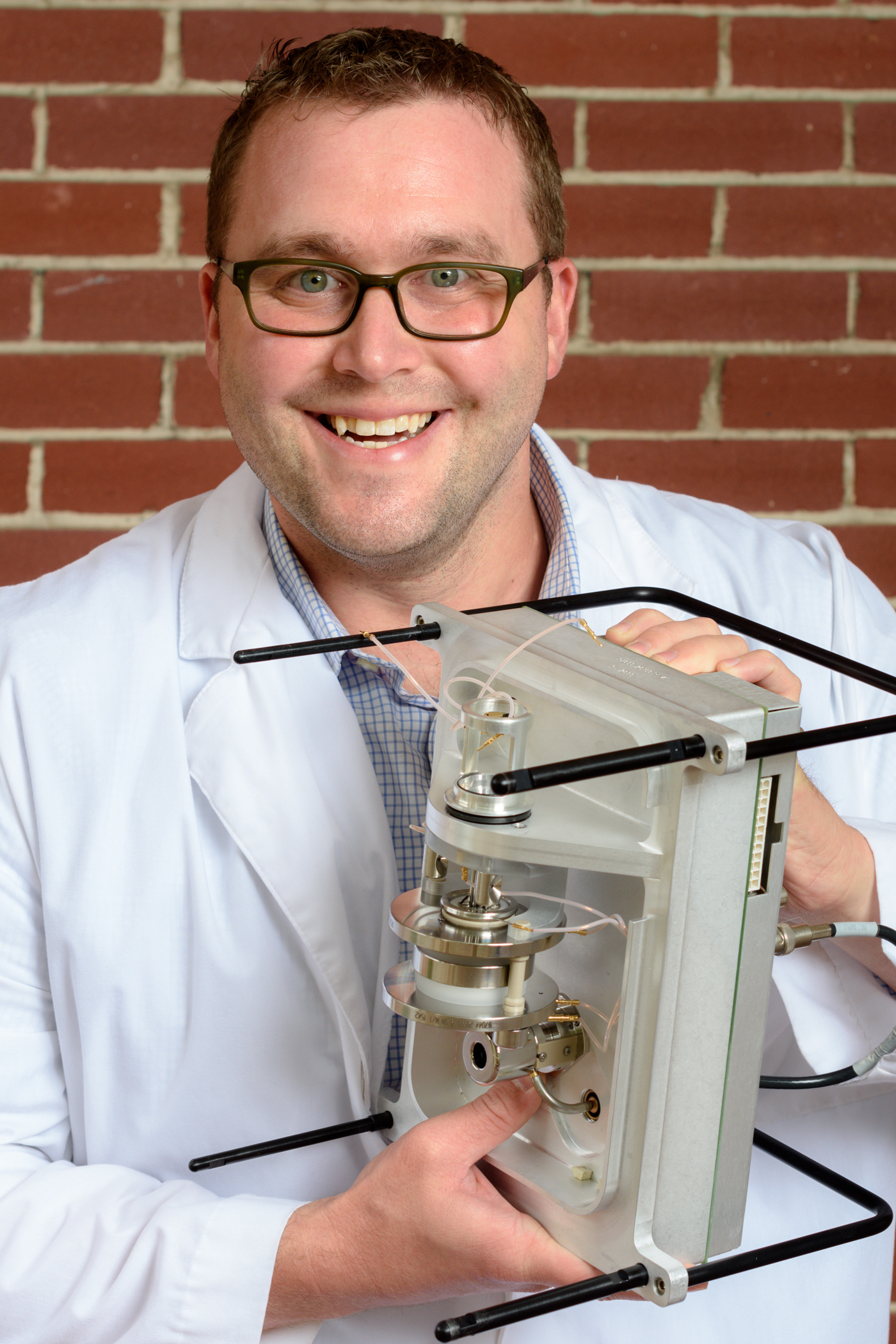
Daniel Todd, Mass Spectrometry Research Operations Manager, is a bioanalytical chemist who specializes in the identification and quantitation of small molecules using mass spectrometry. He serves as Director of the Triad Mass Spectrometry Facility, and oversees a number of projects that involve identification of new metabolites, quantitation of disease state biomarkers, and development of mass spectrometry based bioassays.
Daniel spends his free time playing with his daughter, going on the occasional bike ride, and watching entirely too much Netflix.
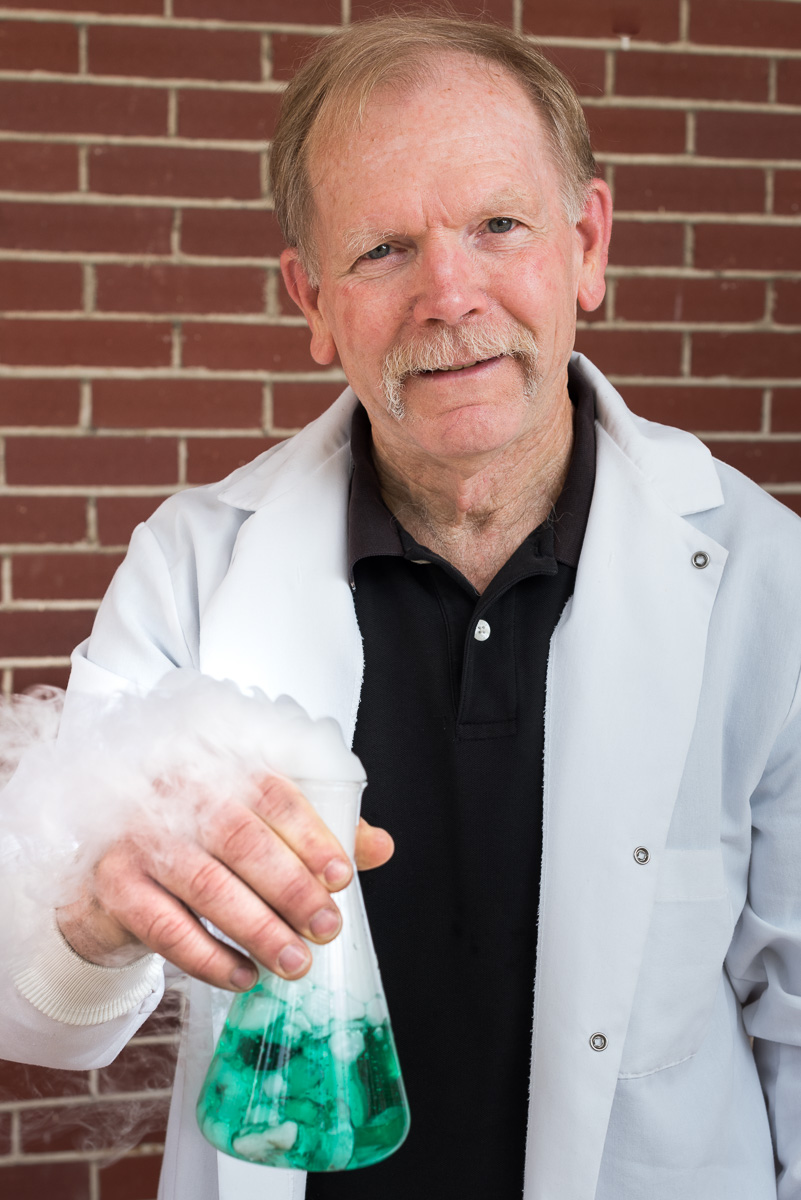
Jerry Walsh, Professor of Chemistry and Associate Chemistry Department Head, specializes in inorganic chemistry and chemistry education. Jerry Walsh promotes STEM Education in the community through teaching and outreach, including Science Olympiad, STEMX Summer Camp, National Chemistry Week, and the campus-wide Science Everywhere. His upcoming project, CUR Transformations, involves working with MC squared staff to incorporate natural products, analytical, and synthetic chemistry research projects into traditional undergraduate labs, with plans to expand access for undergraduate students to research experience. His work with the Transforming Teaching through Technology grant places undergraduate science majors in classrooms as role models for the students and as science support for the teachers.
Jerry likes to work on yards and gardens, houses, and cars. He also plays noonball (basketball) regularly.
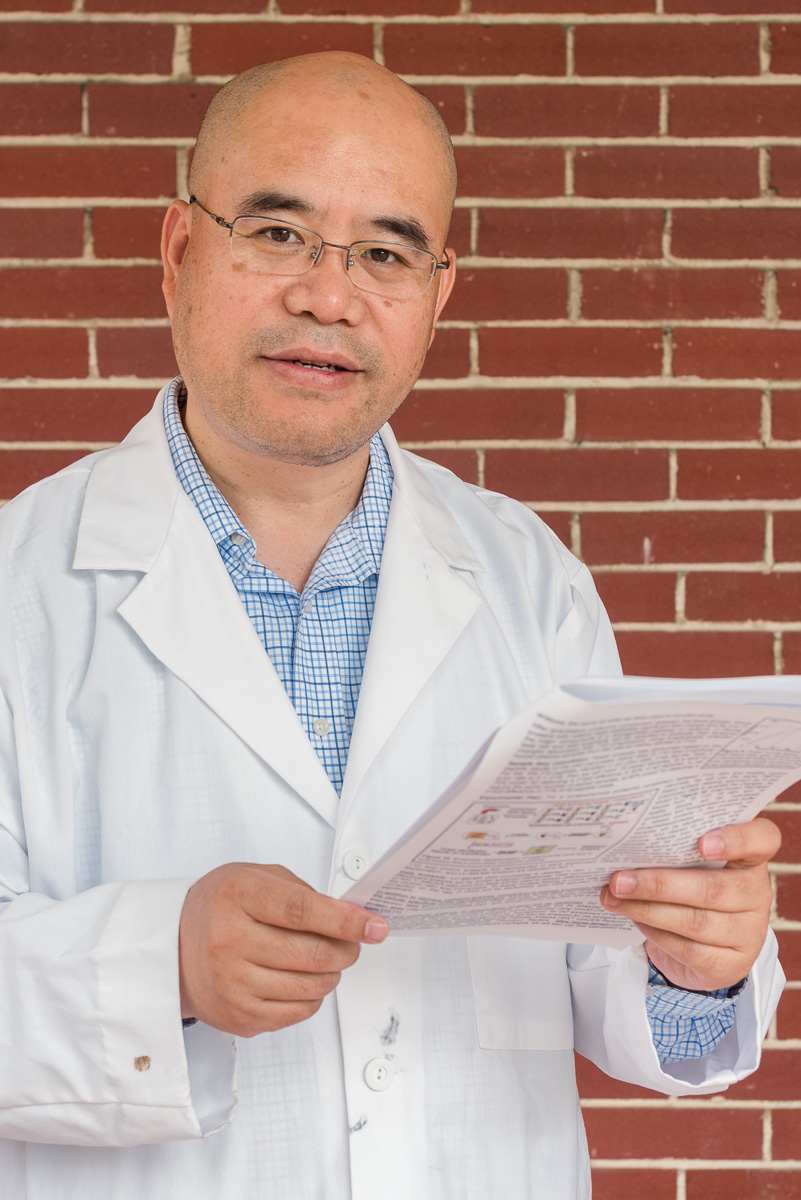
Qibin Zhang, Associate Professor of Chemistry, is a biological mass spectrometrist and Co-Director of the UNCG Center for Translational Biomedical Research in Kannapolis. His research group works to identify biomarkers to Type 1 Diabetes, and is funded by the National Institutes of Health on a project aimed at understanding what triggers this disease.
When not working or driving back and forth between Greensboro and Kannapolis, Qibin likes to play with his three children.